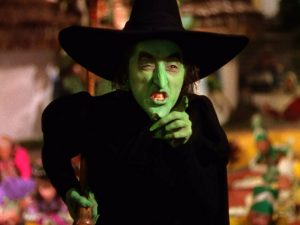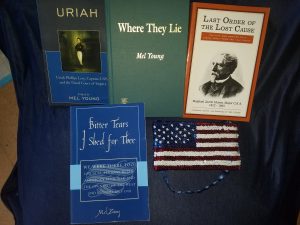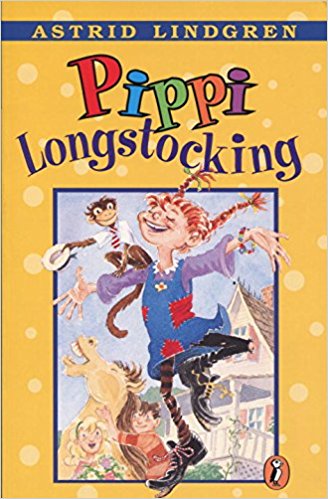As achild growing in the South in the 1960s, there were things I saw on television orheard adults discuss that scared me. These included:the Klu Klux Klan, Nazis, Communists, kooks with nukes, the Wicked Witch of the West and her rabid flying monkeys, rabies carrying batswhocould infectmy dog, Bouffant, and the mean dog catchers who could steal her away from me.
My mother told me if I misbehaved she’d send me back to Sears & Roebuck for another model. I used to thumb through the Sears catalog looking for mail order kids like me.She admonished me for voting for Barry Goldwater in our kindergarten mock election calling him a ‘”war monger.” The possibility of a World War III because I voted for Goldwater even in a mock electionalso scaredme.

In schoolI learnedabout the “the War of Northern Aggression,” a fight to preserve tradition and honor in the South. We called anyone from the north “Yankees” which included several ofour family members who moved there from Chattanooga. Occasionally we’d go to events where women wore hoop skirts and men wore Confederate uniforms, and no one said anything negative. We sang “Dixie” without being criticized. A woman of colornamed Minnie took care of me and called me “Miss Melanie.” I adored Minnieand I’d play with her daughter, Charlie Mae, in the backyard. My parents wereprogressive and taught me to be open minded.Everyone was a guest in our home; race, religion or sexual preference was never an issue.
My Dad was from St. Louis, so not a true southerner. But he fell in love my mother who is andmoved to Chattanooga. One of the first Jews tograduate from the United States Military Academy, Dad became a Civil War historian and wrote four books aboutthe Jews who fought on both sides of the conflict. He collected Civil War memorabilia, now donated to a museum. It doesn’t mean he supported the Confederacy. He considered himself ascholar and a documentarian and the topic fascinated him.

I grew up reading books like “Pippi Longstocking,” “Babar the Elephant,” The Cat in the Hat,” “Little House on the Prairie” and “Charlie and the Chocolate Factory.” I just read in an article published recently inTime Magazine that people are saying these books all have undercurrents of racism. My Dad loved the works of Rudyard Kipling (as did I) and heoftenquoted “Gunga Din.” They’re racist books critics say. Goodness knows Grimm’s Fairy Tales are pretty grim if you read between the lines. What’s next, reading something into why Nancy Drew and Ned Nickerson never kissed? All my life I’ve enjoyed reading, and no one has ever told me to stop reading a book because it was subversive.I’d like for people to stop knocking mychildhood books andruining it for kids who just want to read for fun and not political and social interpretation.

Seeing “Gone with the Wind” for the first time was a huge deal. My father told me it would be one the most important movies I’d ever watch. I fell in love with Scarlett O’Hara’s fearlessness and determination, and I admired Melanie’s kindness and generosity. They both inspired me. I have an old edition of GWTW on my bookshelf that I’ve carried from home to home, and I can still recite passages. I don’t consider this classic book politically incorrect because it glorifies the Old South. I just want to enjoy a great story andnot have to read between the lines or feelguilty.
Statues and works of art since ancient times haveportrayed many unsavory parts ofhumanity, from rape to murder to crucifixion.And people still harm each other. Destroying or removing a statue is a band-aid that cannot heal a festering wound. It’s a bigger discussion that requires better action, especially when you still see images of people marching with swastikas and confederate flags in the same photo chanting horrible things, and individuals being gunned or mowed down because of their skin color or beliefs.
And I thought all the things that worried me as a child would be long behind me as an adult.
In Chattanooga, there’s a Confederate cemetery next to a Reformed Jewish cemetery. Down the road is the National Cemetery where my father is buried along with hundreds of veterans of different wars. In the same cemetery black soldiers who served in the Civil War as the colored troops of Americaare buried. There is a separate section forGerman prisoners of warwho served in World War II. People who may have hated each other in lifenow lie peacefully in thisexpansive burial ground. I hope no one defaces any of the graves.
And that rumble underfoot in the cemeteryis myfather, the soldier/writer/historian, turning over in his grave at all of thiscraziness.










